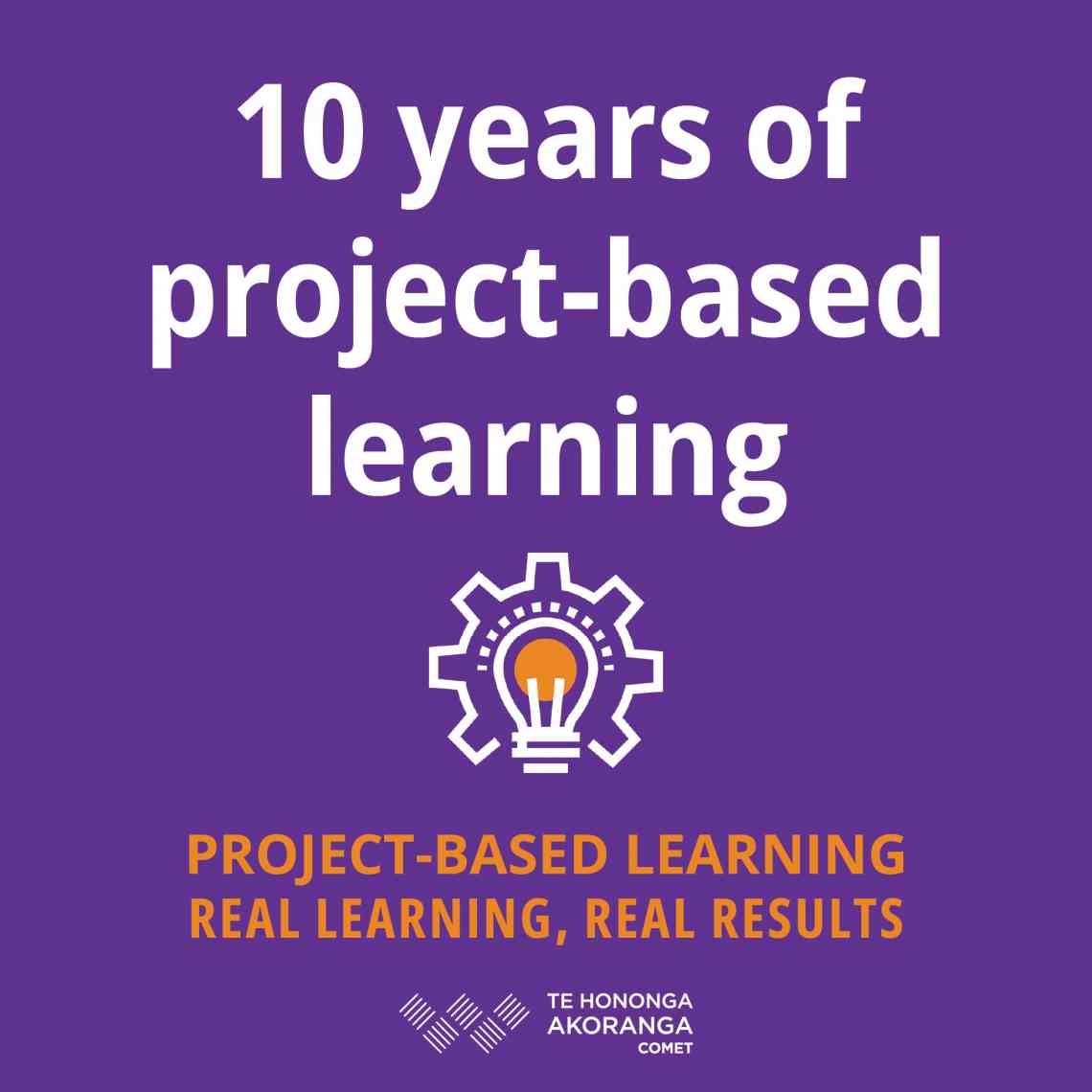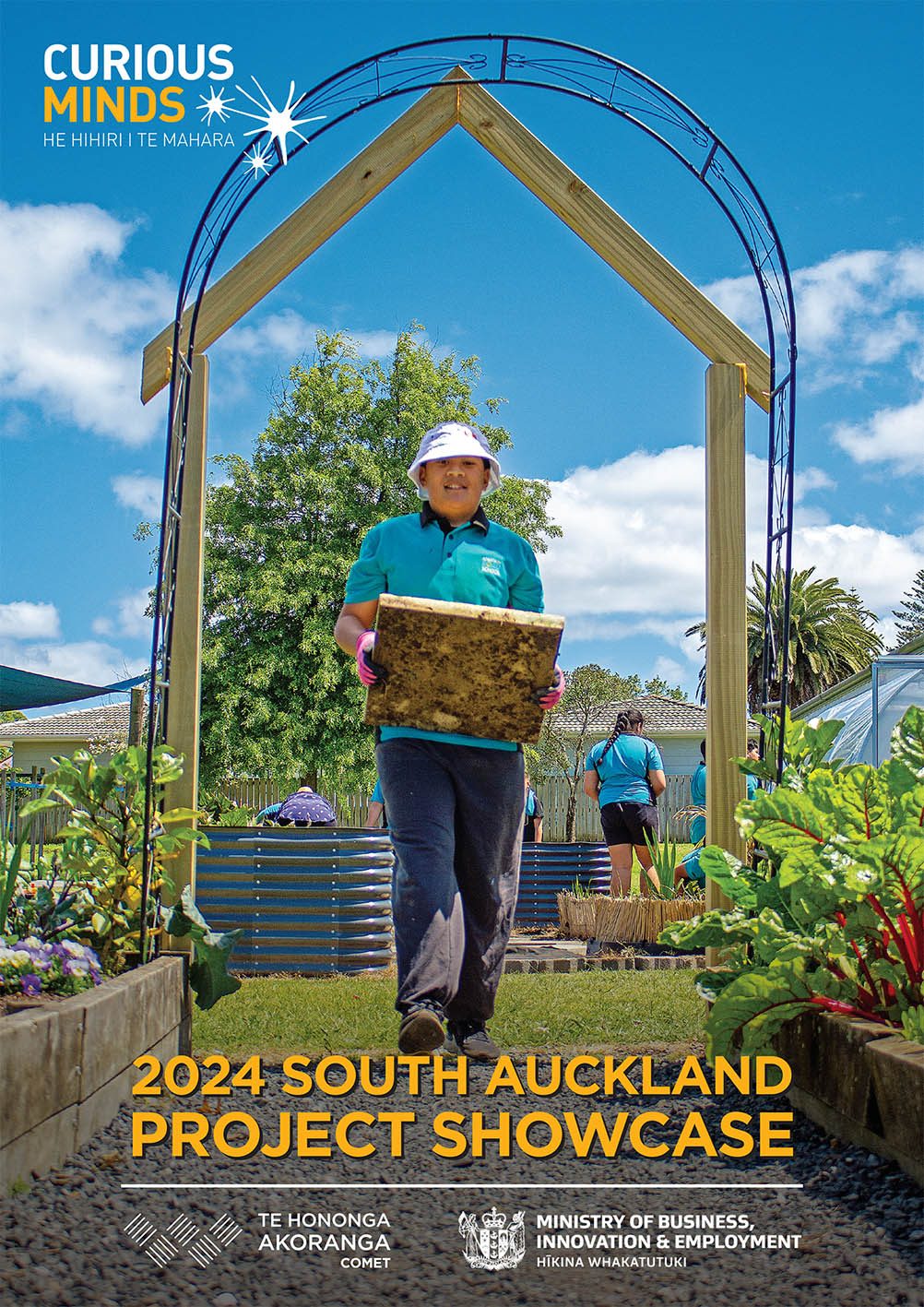What 10 years of project-based learning has taught us: the Curious Minds story #
Katheren Leitner
Chief Executive — Te Hononga Akoranga COMET
If you want to understand the value of project-based learning, don’t start with theory. Start with questions.
Ask the students who tested their local water quality and presented the findings to council. Ask the rangatahi who used drones to map flooding around their marae. Ask the learners who used mātauranga Māori to investigate biodiversity in nearby ngahere/forest.

For ten years, Curious Minds South Auckland has been leaning into those questions, and what we’ve learned is simple: when young people investigate real-world issues with real-world tools, the learning goes deeper, lasts longer and reaches further.
The story in numbers
Since 2014, Curious Minds South Auckland has:
- Funded 92 projects
- Engaged 7,378 young people
- Partnered with 94 schools
- Collaborated with 181 community and industry organisations

Every project has been locally driven, hands-on and tailored to the aspirations and challenges of south Auckland’s diverse communities.
These numbers aren’t just a measure of scale. They reflect relationships built, questions explored and communities that now see themselves as active contributors to science, innovation and change.
Why it works
At its core, Curious Minds supports project-based learning (PBL) and inquiry-based learning (IBL) — approaches through which students are empowered to ask questions that matter to them and lead their own investigations.
What sets this programme apart is its commitment to:
- Local relevance: Projects start with community concerns — like water quality, transport safety, flooding or energy use.
- Hands-on inquiry: Students collect data, test hypotheses and share findings publicly.
- Cross-sector partnerships: Engineers, scientists, artists, iwi and community leaders co-design learning.
- Cultural connection: Mātauranga Māori and local knowledge are valued alongside scientific frameworks.
- Structured Framework: A powerful question and a research framework that facilitates enquiry, challenge and learning.
The impact we've seen
After 10 years of implementation, Curious Minds South Auckland has delivered far more than project funding. It has created lasting change in how students, teachers and communities experience learning.
- Teachers reported increased confidence and pedagogical development Multiple teacher reflections and evaluations state that participating in Curious Minds projects supported their confidence in delivering science and project-based learning. The support of external experts and access to resources was key in making science more accessible for both kaiako and ākonga.
- Students reported feeling more capable, confident and engaged Qualitative feedback and case studies show that rangatahi developed stronger science identities, particularly when they were given agency and the opportunity to share their learning in public forums such as community showcases or local board meetings.
- Culturally responsive approaches were embraced Many projects intentionally incorporated mātauranga Māori and tikanga, supporting students in drawing on both scientific and cultural knowledge systems. This integration was especially meaningful for Māori and Pasifika learners, contributing to a stronger sense of identity and belonging.
- Community and environmental impacts were visible Several projects informed community decisions or contributed to local restoration and resilience planning. Examples included stormwater and water quality research, drone-mapped marae flood risk assessments and pest biodiversity monitoring that was fed back into council planning.
- Projects had long-lasting influence A number of schools have now adopted project-based learning, with some embedding it across curriculum areas or continuing industry and iwi partnerships independently.
A decade of discovery
From shellfish health and air pollution to robotics, storytelling and systems thinking, Curious Minds projects have covered it all. What unites them is purpose.
When students see that their work matters beyond the classroom, everything changes. They show up differently. So do their teachers. So do their communities.
As we reflect on a decade of this work, the question now is: What will it take to make learning like this the norm, not the exception? Curious Minds has taught us that curiosity — when supported — turns into capability.
Over nearly a decade, the Curious Minds Participatory Science Platform has empowered communities, schools and students across south Auckland to engage meaningfully in STEM (science, technology, engineering and mathematics). With a focus on authentic, community-driven projects, the programme has sparked curiosity, built confidence and left a lasting impact on thousands of young minds.
Turn to page 28 of our latest project showcase to read more about the reach, outcomes and sustained changes that demonstrate the value of this investment and its powerful legacy.
